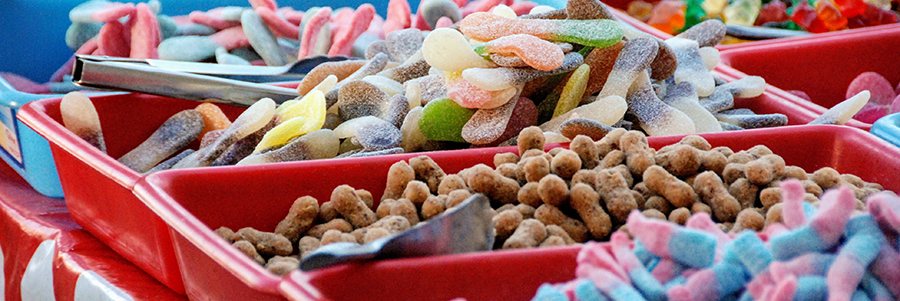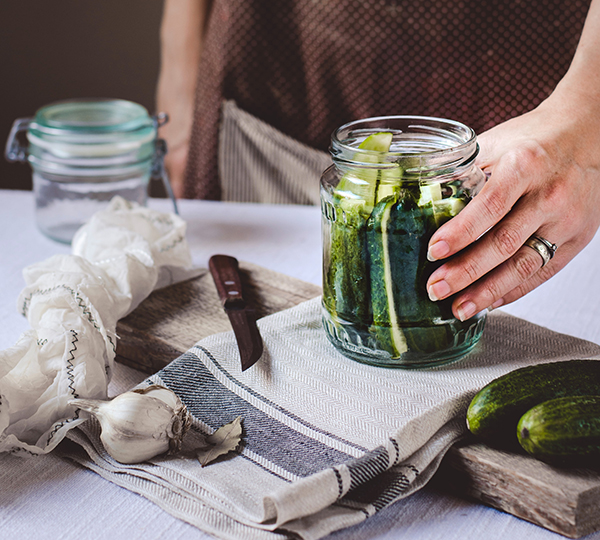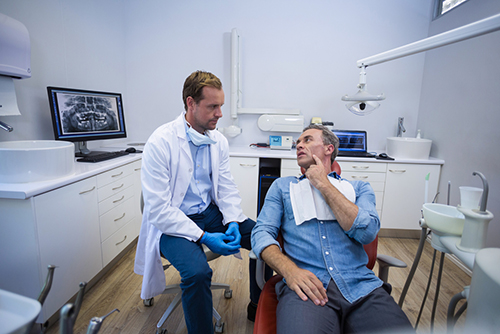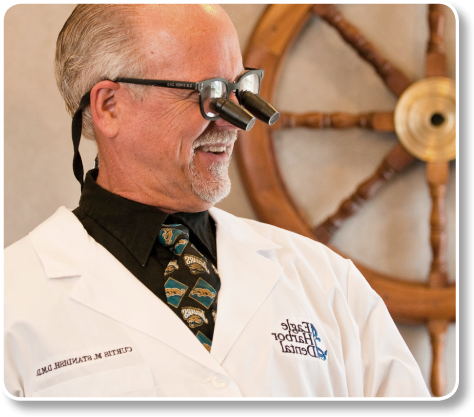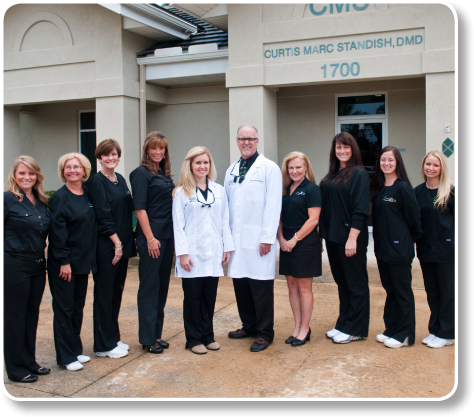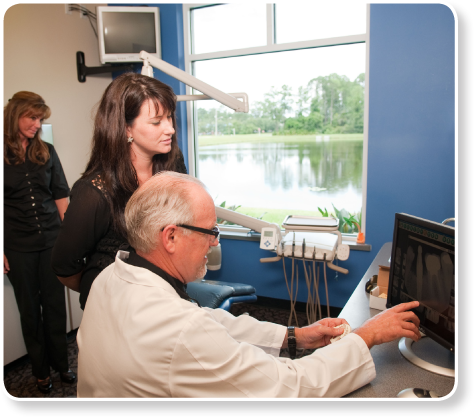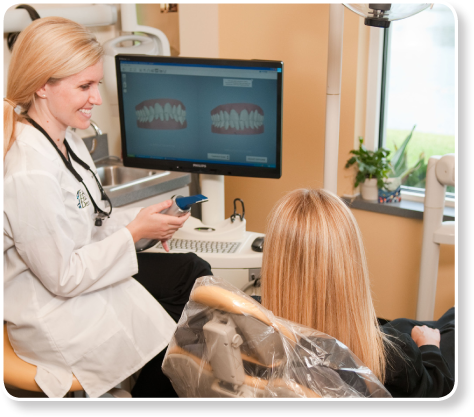12 Worst Foods for Your Teeth (With Tasty Alternatives)
Aug 7, 2023
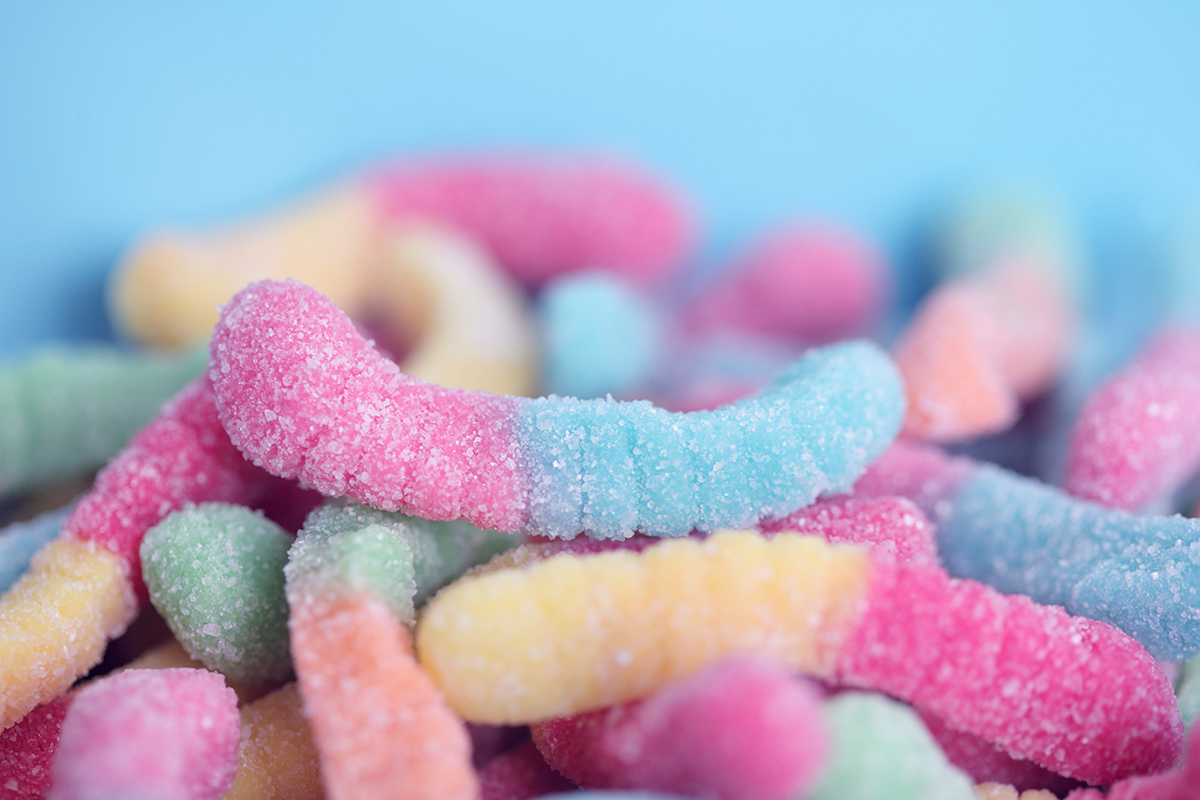
Bad news, your favorite snacks may be responsible for wreaking havoc on your oral health. The food we put into our bodies is just as important as frequent teeth brushing and regular visits to the dentist. While you don’t have to cut the foods you love from your diet entirely, moderation can help avoid cavities and other problems that result from frequent consumption of tooth-unfriendly foods.
Foods that are bad for your teeth usually fall into one of the following categories:
- Especially crunchy foods
- Starchy foods that stick in the mouth
- Sticky foods that stay on teeth
- Foods that dry out the mouth
- Foods that are high in sugar
- Highly acidic foods
Take a look at the 22 worst foods for your teeth with our favorite tasty alternatives and pro tips.
1. Carbonated Soda
The sugars in carbonated drinks can interact with bacteria present in your mouth. This results in the production of an acid which then attacks your teeth. This damaging interaction lasts for the 20 minutes following each and every sip of your favorite carbonated drink. This can lead to erosion of the tooth enamel which is important for the protection of your teeth. It can also result in damage to the dentin of your teeth and can result in cavities developing.
Drink Sparkling Water Instead
If you want the fizziness of a carbonated, sugary soda without the damaging effects on your mouth then sparkling water is a great substitute. Sparkling water contains fluoride which can actually help to fight cavities. Just avoid sparkling waters with higher sugar content or citrus flavors. These may have the same damaging effects as carbonated soda.
2. Alcohol
Alcohol leads to dehydration and dry mouth. When you drink, especially in excess, you’re putting your gums and teeth in danger due to the reduced saliva flow. Alcohol consumption has actually been linked to a higher risk of developing gum disease and a greater risk of mouth cancer.
Try Moderation Instead
You don’t have to abandon drinking alcohol entirely. If you want to drink, do so in moderation paired with regular brushing, flossing, and regular dental cleanings.
Fun fact, if you do want a drink you can go for a glass of wine which can actually be good for your oral health. Polyphenols, found in wine, cause good bacteria to thrive while kicking bad bacteria to the curb.
3. Citrus
The acid found in citrus fruits can lead to the erosion of enamel. This results in teeth that are more likely to decay. Dental erosion can lead to sensitivity to hot and cold foods, discoloration, transparency, cracks, and rounded teeth.
Eat Other Fruits Instead
Try eating fruits lower in acid to reach your daily fruit intake. This includes fruits like bananas, apples, peaches, and pears. If you still want the benefits of citrus (antioxidants and vitamins) go for consumption in moderation. You should follow up eating any citrus fruit with a mouth rinse to remove the harmful acidity from your teeth.
4. Chewy Candy
Chewy candies stick to your teeth and do not easily come off the teeth without brushing. This can lead to oral health problems. Besides sticking to your teeth, bacteria is another concern when consuming chewy candies. A chemical reaction turns the sugars into a harmful acidic form that eats away at the enamel of your teeth, as with carbonated sodas.
Choose Non-Chewy Alternatives
Go for candy that is not particularly sticky. Chocolate is one of the better alternatives, especially dark chocolate due to its lower sugar content.
5. Dried Fruits
Dried fruits are like chewy, sticky candies in disguise. Dried fruits tend to be high in sugar and will inevitably be sticky. This leads to the fruit latching onto your teeth and creating bacteria that lead to decay by attacking your enamel.
Eat Fresh Fruits Instead
It’s always better to go with fresh fruit if possible. And, as always, try to brush quickly after you consume both dried and fresh fruits to keep your teeth in good shape.
6. Pickles (And Other Pickled Foods)
Both sweet and sour pickled foods are bad for your teeth, this is due to the high sugar content and high acidity. The acidity in pickles wears down the enamel of your teeth opening it to problems like cavities.
Follow Pickles With Cheese
It may sound strange, but pairing pickles or other sour pickled foods with a piece of cheese can actually combat the effects of acid. This is because the calcium found in cheese will neutralize the acid. Gum with xylitol will have the same effect.
7. Popcorn
Popcorn creates lactic acid in your mouth and often results in husks getting wedged in your teeth. Not to mention, un-poped kernels are notorious for cracking teeth if you aren’t careful. Popcorn, while often touted as a yummy, healthier alternative to potato chips, still isn’t great for your oral health.
Snack on Trail Mix Instead
Trail mixes are a great alternative to snacking on popcorn. While you’ll need to consume less due to the dense nature of trail mix, you won’t need to worry about popcorn kernels cracking teeth or pesky husks getting stuck in your mouth.
8. Sour Candy
Sour candies are highly acidic. This can be harmful to the enamel and dentin of your teeth. If the enamel of your teeth is eroded away it can lead to cavities and other oral health problems. If you do decide to eat sour candies, follow with immediate brushing and flossing to avoid the negative side effects.
Eat Non-Sour Candy Alternatives
If you have a sweet tooth, it can be hard to find oral health safe alternatives to your favorite candies. With sour, chewy, and hard candies putting your mouth at risk you’ll have to get creative. Try going for chocolates if you want to be particularly tooth-friendly with your dessert habits.
9. Hard Candy
Hard candies are made with sugar, lots of sugar. As you slowly move through a bag of your favorite hard candies you create the perfect environment for cavities to set in. This is especially due to the sugar staying in your mouth for a long period of time as the candy slowly dissolved in your mouth.
Practice Teeth-Friendly Candy Consumption Habits
Good news: You don’t have to give up your favorite candies to maintain excellent oral health. Be sure to practice the following habits when you enjoy hard candy:
- Consume in moderation
- Eat candy with a meal (the saliva production helps prevent decay)
- Brush post-consumption
10. Tea
Tea can be both good a bad for your oral health. The tannins found in tea can eventually cause discoloration to your teeth. While this isn’t necessarily outright harmful to your teeth, many find themselves self-conscious of stained teeth. Teas that are especially sugary can cause cavities as all sugary foods do.
Drink in Moderation Instead
Because tea isn’t just plain bad for your teeth, you shouldn’t cut it out of your diet entirely. Avoid adding too much excess to the tea (lemon, honey, sugar) to avoid cavities. Unsweetened or sugar-free teas are the best option to get the benefit of tea without the oral health problems it may cause.
11. (Some) Kombucha
Kombucha is great for your health but not always great for your oral health. This is due to its high acidity which leads to enamel breakdown. As noted previously, enamel loss can lead to increased tooth sensitivity and a higher risk for tooth decay. This can also lead to discoloration where your teeth begin to appear brown in color.
Consider the Type of Kombucha You Drink
The good news is, you don’t have to avoid drinking kombucha all together. Kombucha is great for its probiotics for healthy digestion. What you should do is pay attention to the kombucha you are consuming. Watch out for kombucha that is particularly high in sugar content. Other kombucha drinking tips include drinking it in one sitting, using a straw, consuming with food, and drinking it alongside water. This gets you the health benefits of kombucha without any negative side effects to your pearly whites.
12. Crackers
Even some crackers may be bad for your oral health. This is because starchy, refined carbohydrates linger in the mouth breaking down into simple sugars which then produce acid and lead to tooth decay.
Practice Proper Oral Hygiene
This chain reaction is one you’d want to avoid but you don’t have to avoid every eating cracker again. Simply practice proper oral hygiene by brushing after consumption. You’ll also want to avoid snacking on crackers throughout the day over a longer period of time.
How to Prevent Damage to Your Oral Health
Avoid Snacking
Frequent snacking and consumption of high sugar foods could also be a factor in declining oral health. In fact, some professionals believe higher frequency snacking may be a bigger cause of oral health problems than high sugar intake alone. Avoid snacking between meals and practice good oral hygiene when you do.
Proper Oral Hygiene
As always, brush and floss twice a day to keep the cavities away. Proper oral hygiene is a must, especially when you’ve been enjoying the foods on this list.
Proper oral hygiene consists of brushing your teeth twice daily with fluoride toothpaste and a soft-bristled toothbrush. This should be followed by flossing daily. If you aren’t a fan of traditional dental floss, a water flosser is an easier and more pleasant alternative. You can even go the extra mile with a fluoride mouthwash.
Regular Teeth Cleanings
Chances are slim that you want to completely remove all the aforementioned foods and drinks from your diet entirely. Lucky for you, eating your favorite snacks and meals is still possible with the help of regular professional teeth cleanings.
Visit your dentist at least once a year (preferably every six months) to have your pearly whites professionally cleaned. This will cut down on plaque buildup and keep your teeth in shape.
If you haven’t been to the dentist in a while, scheduling a cleaning can get your oral health back on track.
Need to get caught up on dental cleanings?
Call to schedule your appointment!
(904) 269-6558
or
Fill Form To Schedule Your Appointment
For informational purposes only.

